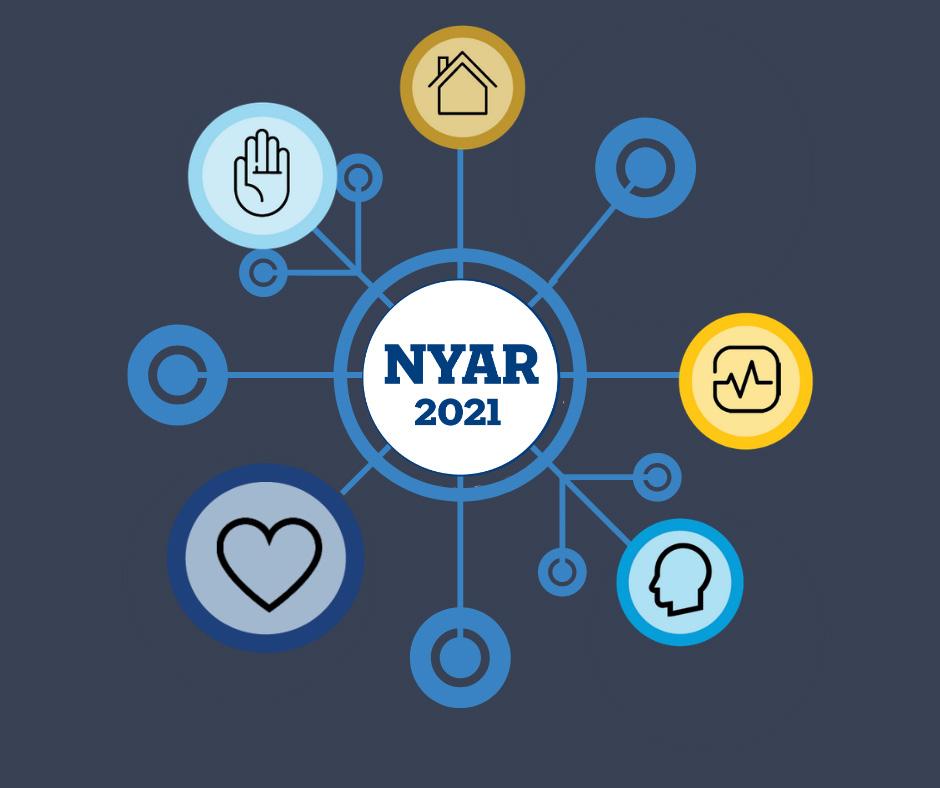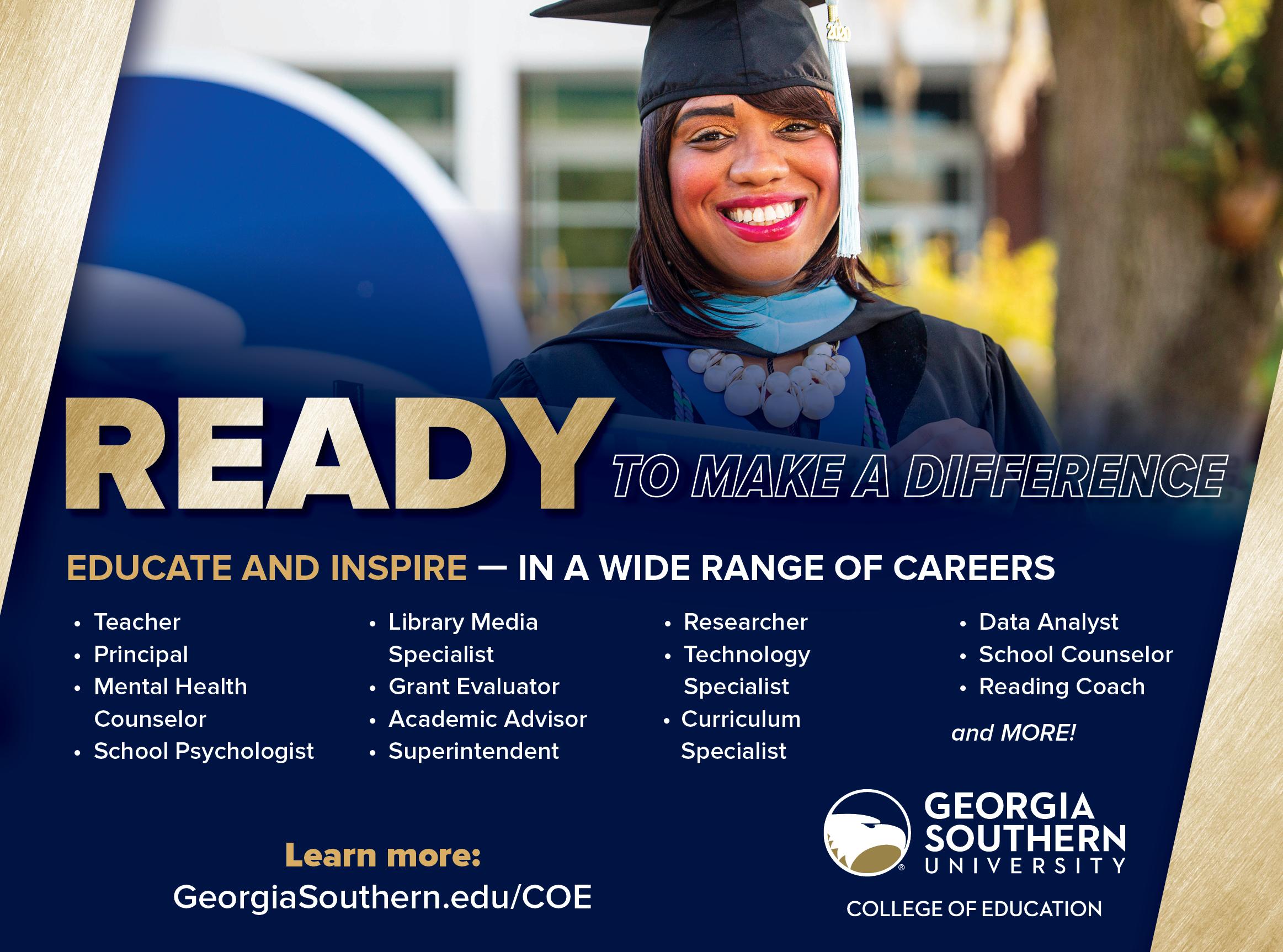
5 minute read
Session Two
11:20 - 11:40 a.m. Session Change • Exhibitor Appointments
11:40 a.m. - 12:40 p.m. Session 2 Breakouts
Breaking Barriers for Youth in Foster Care: Flipping the Script
Moderator: Taylor Draddy, MA, Congressional Coalition on Adoption Institute, Washington, DC Panelists: Willie Moore, Jr., Celebrity Adoptee, St. Louis, MO Demontea Thompson, MS, Together We Inspire, Los Angeles, CA Christopher Scott, MA, Sun Scholars Inc., Hartford, CT Tanzy Kilcrease, EdD, Bibb County Public Schools, Macon, GA Sara Wood, EdD, Bibb County School System, Macon, GA Currently, there are over 400,000 children and youth in the U.S. foster care system. 125,000 of those children and youth are eligible for adoption and roughly 30,000 youth aged-out of the system last year. To us, educators, school systems, social workers, child welfare agencies, politicians, government leaders, community partners, religious leaders, and people with lived experiences in the foster care system must come together to break down the barriers and provide data driven and lived experience solutions that eliminate youth in care from repeating the cycle of poverty, abuse, neglect, incarceration. We must also put our best efforts forward to provide these children with support and stability that will lead them to a forever family.
UBUNTU (I Am Because We Are): Using Professional Development Practices to Build Diversity, Equity and Inclusion in Teaching and Leading
LaMarr D. Shields, PhD, Cambio Group, Baltimore, MD In this interactive workshop, participants will explore what it means to teach and lead for equity within the current challenging contexts in which we all find ourselves. Dr. Shields will guide participants through a series of practical exercises to explore their emerging understanding of how equity work connects to other teaching and learning initiatives. In addition, the facilitator will guide participants through a series of reflective questions to deepen their understanding of equity work and will give them tangible strategies that can be used immediately when engaging with their most vulnerable, underserved students. The professional learning tools highlighted in this session are specifically intended to develop leaders with an equity lens and mindset. Using an equity lens, leaders will actively work toward the creation of equitable practices, policies, and structures and will be equipped to help related education networks and communities—small and large—to do the same.
De-Escalation Made Easy: A Common Sense Approach
Matt Eldridge, EdS, Certified Restraint Training, Hilham, TN Matt uses a common sense approach to de-escalating undesired / unwanted situations in the classroom. He will discuss many of the causes that lead to these unwanted situations. Oftentimes situations are magnified by the student’s actions and others are unknowingly escalated by the teachers. Matt will discuss what we can do to lessen aggressive and dangerous situations.
Raise Them Up - Part 2
Julia Gabor, MEd, kid-grit, Redondo Beach, CA Jeffrey Jordan, BA, kid-grit, Bayone, NJ In part two of this two-part series, we will engage staff and address self-regulation in areas of mindfulness, healthy behaviors, tolerance and empathy, and digital/social consciousness. This workshop provides a brandnew approach to helping staff and students develop motivation, positive behavior, and resilience. They will provide team building and hands-on activities to implement in your organization as soon as tomorrow! SEL strategies are a powerful tool for helping young people and staff become culturally connected and allow them to have their own identities without judgment. This session provides myriad ways for staff to connect with each other as well as in the same ways as when they work with their students.
And Restoration for All... Reimagining the In-School Suspension Model While Building a Culture of Reflective Students
Eric Rainey, MEd, Restorative Well/Monell Educational Training Consultants, LLC, High Point, NC Angela Monell, EdD, Guilford County Schools, High Point, NC In direct response to the traditional “In-school suspension”, Dr. Angela C. Monell envisioned and created a space where students can reflect, examine, and restore. With carefully selected staff, Social Emotional Learning practices, and a daily focus of introspection and restoration versus punishment, the idea is that students will be successful. By strategically selecting socially and emotionally centered educators, Restoration Station educates, advises, and supports students in the space and after they leave. Monell was meticulous in the creation of this two-staff model as it provides a “wrap-around” feel and students are not only seen in the space but are also provided with focused follow-up and coaching several days beyond their behavioral incident. Shortly after its inception, Monell upgraded the restoration station model with the implementation of restorative practices, guided by Eric Rainey, licensed trainer for the International Institute of Restorative Practices.
Teaching So They Get It to “Got It!” - the Instructional Cha-Chas
LeAnn Nickelsen, MEd, Maximize Learning Inc., Solution Tree author, Duluth Merging neuroscience, formative assessment process and differentiation, Instructional Cha-Chas are four steps (chunk/chew/check/change) for planning and implementing lessons that prevent and close gaps in all subject areas and grades. You will get templates, tools, and strategies for teaching content so it’s meaningful, for engaging students with high-impact thinking, and for examining and responding to daily student evidence so all students get it to “Got It!”.
Let’s Talk About It: Cyberbullying and Suicide
Kanessa Miller Doss, PhD, NCSP, NCC, Troy University, Montgomery, AL Sherrionda Crawford, PhD, LPC-S, NCC, Troy University, Auburn, AL The relationship between suicide and bullying, particularly cyberbullying is becoming of increased interest in schools. This presentation will introduce cyberbullying and suicidality as well as address the roles of school teachers, administrators, and school-based mental health professionals. The participants will discover evidence-based approaches to prevent bullying and suicide.
The Youth Gun Violence and Voice Survey: The Classroom Experience
Diana Santangelo, PhD, United Way of Miami-Dade, Miami, FL Community violence surrounding children and youth affects a variety of developmental outcomes, including social-emotional, behavioral, physical, and cognitive domains. Adolescents who are exposed to continual community violence can respond with aggression, anxiety, behavioral issues, academic problems, and truancy. The purpose of this study was to develop and validate a survey instrument that measures the youth perspective of the classroom experience following the loss of a schoolmate due to homicide by firearm. Youth perspectives challenge normative perspectives and can critique common policies and practices, and such findings can inform instruction and policy.
Using Music As a Teaching Tool to Teach Social Emotional Learning (SEL)
Pat McManus, Rock In Prevention, Des Moines, IA Christina Jensen, BA, Rock In Prevention, Des Moines, IA Music has been known to improve retention of topics and knowledge, and Social-Emotional Learning (SEL) is the foundation for academic achievement. Using music to teach helps students make an emotional connection, making it easier for students to gain knowledge on topics such as empathy, self-management, self-awareness, social awareness, relationship skills, and responsible decision making. Experience the use of music to teach SEL!




